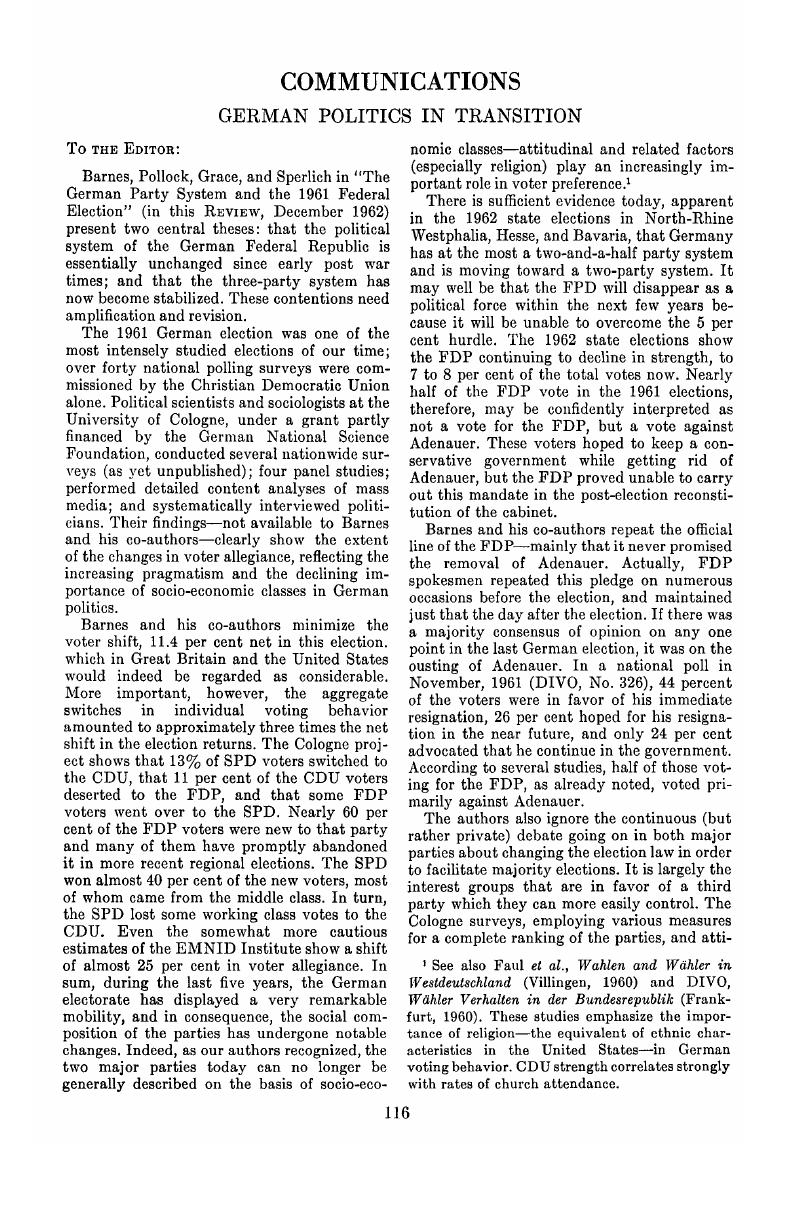No CrossRef data available.
Published online by Cambridge University Press: 01 August 2014

1 See also Faul, et al., Wahlen and Wähler in Westdeutschland (Villingen, 1960)Google Scholar and DIVO, Wähler Verhalten in der Bundesrepublik (Frankfurt, 1960)Google Scholar. These studies emphasize the importance of religion—the equivalent of ethnic characteristics in the United States—in German voting behavior. CDU strength correlates strongly with rates of church attendance.
2 A few other points in the article need mention. First, the reason for the unusually high number of invalid votes in the Saar can be easily explained: certain political splinter groups there had asked voters to cast white ballots. Second, the relatively good showing of the CDU in both Lower Saxony and Bavaria can be explained by the presence of a sizeable reservoir of votes of a crumbling fourth party—the former DP in Lower Saxony, and the Bavarian Party in Bavaria. Third, it should be emphasized that politics in Germany has become unusually expensive—the last campaign is conservatively estimated to have cost around seventy million marks.
Comments
No Comments have been published for this article.